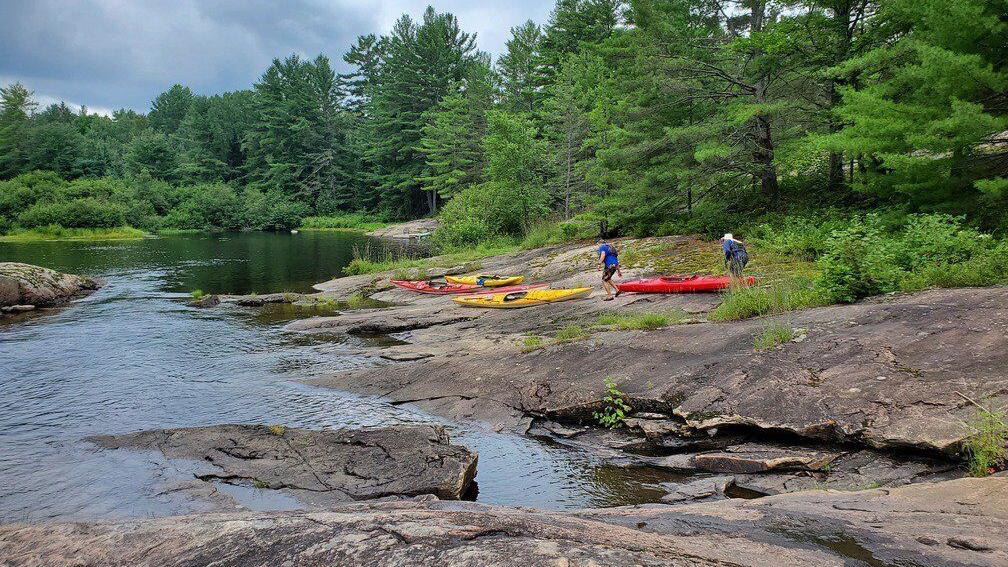What is watershed health?
The Muskoka Watershed Report Card describes some disturbing trends in a number of environmental variables.
By Kevin Trimble.

Muskoka Watershed Council (MWC) claims its 2023 Muskoka Watershed Report Card scientifically assesses Muskoka’s watershed health, and yet watershed health is not measured in either the Report Card or its detailed background report. Why on Earth not?
The Report Card evaluates a number of environmental variables that are being monitored. Many of these are described in other articles in this series; and yet, there’s no direct assessment of watershed health.
The reason is that watershed health is a lot like your own health. Just as your doctor does not have a simple blood test or thermometer-like gadget that can measure your overall health, environmental scientists lack a simple way of measuring watershed health.
Watershed health is complicated and includes some even more complicated scientific concepts, like ecosystem stability and ecological integrity. Measuring it is difficult. One of my first mentors in the field of environmental management often said that “Ecology isn’t rocket science — it’s way more complicated than that.”
Compared to measuring watershed or ecosystem health, putting people on other planets is like assembling Lego.
Unlike municipalities with boundaries unrelated to the living landscape, watersheds are ecosystems with natural (ecological) boundaries. They are dynamic, complex systems comprising all the organisms, the many interactions among them, and interactions with their physical environment.
The components of our watershed ecosystems, including humans, interact in myriad ways. Each organism or species has a role to play, but each is dependent on and affected by all the others. Changes in one component will affect all the others and the overall system.
A healthy, stable or resilient watershed is one in which these interactions maintain a delicate balance, and the system maintains a more or less stable state over periods of years. Ecosystems have the ability to adapt or recover from some amount of change or disturbance, but when they can’t, or when the disturbance is too drastic, they become unstable or unhealthy.
For our Report Card, we can measure water chemistry, we can calculate the area of wetlands over periods of years, we can assess the density and growth of forest trees; such measurements, repeated over time, can be examined for changes. We can, perhaps, identify causes for trends observed, but combinations of trends are more difficult to assess because of the interactions.
The apparent increase in frequency of blue-green algae blooms (the topic for next week’s article) is a good example of what we face. We’re only just learning that such blooms aren’t caused by single factors, such as phosphorus levels in a lake, but by a number of interrelated physical and biochemical changes in the environment that we don’t quite understand. And algal blooms are only one piece of watershed health.
The 2023 Muskoka Watershed Report Card suggests that our watersheds are generally healthy, but it describes some disturbing trends in a number of environmental variables that are monitored. To mention a few: the weather is getting more erratic, we’re seeing more blue-green algae blooms, biodiversity and forest health are at risk, calcium has been depleted in our soils and lakes while road salt is increasing.
Some of these trends are easy to understand individually. But combined, they may be impacting overall watershed health in ways that are difficult to assess.
Degrading the health of our watersheds also has impacts on our economy and, potentially, our own health. And like human health, we not only need to think about individual symptoms, but also how multiple symptoms affect our overall well-being.

This is the sixth in a series of articles from the Muskoka Watershed Council on “The State of Our Watershed” published on MuskokaRegion.com. Each explores environmental issues and management challenges revealed in the 2023 Muskoka Watershed Report Card. This week’s contributor is Kevin Trimble, a Muskoka resident, retired ecologist, and director and past chair of the Muskoka Watershed Council.
